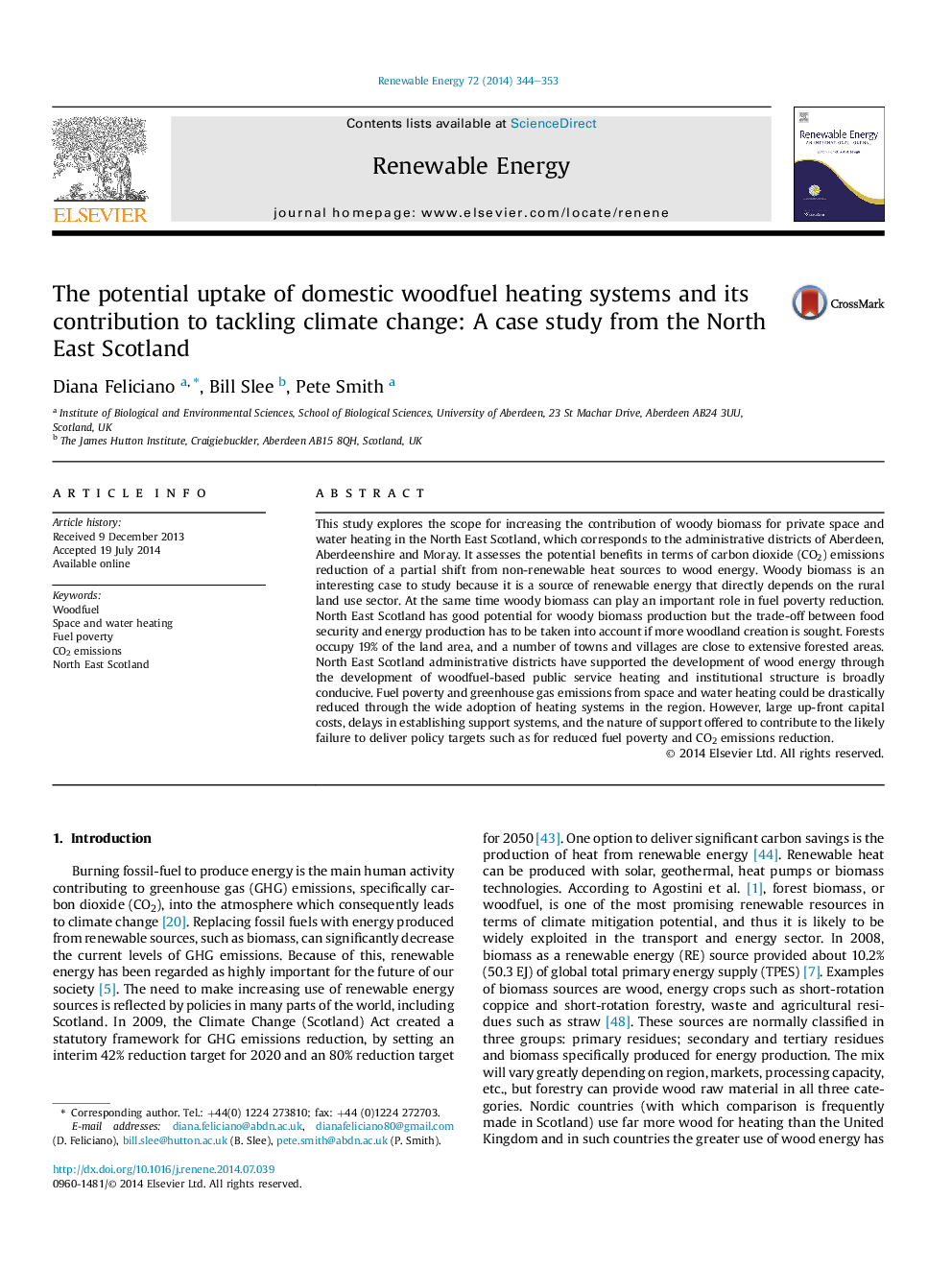| Article ID | Journal | Published Year | Pages | File Type |
|---|---|---|---|---|
| 6767978 | Renewable Energy | 2014 | 10 Pages |
Abstract
This study explores the scope for increasing the contribution of woody biomass for private space and water heating in the North East Scotland, which corresponds to the administrative districts of Aberdeen, Aberdeenshire and Moray. It assesses the potential benefits in terms of carbon dioxide (CO2) emissions reduction of a partial shift from non-renewable heat sources to wood energy. Woody biomass is an interesting case to study because it is a source of renewable energy that directly depends on the rural land use sector. At the same time woody biomass can play an important role in fuel poverty reduction. North East Scotland has good potential for woody biomass production but the trade-off between food security and energy production has to be taken into account if more woodland creation is sought. Forests occupy 19% of the land area, and a number of towns and villages are close to extensive forested areas. North East Scotland administrative districts have supported the development of wood energy through the development of woodfuel-based public service heating and institutional structure is broadly conducive. Fuel poverty and greenhouse gas emissions from space and water heating could be drastically reduced through the wide adoption of heating systems in the region. However, large up-front capital costs, delays in establishing support systems, and the nature of support offered to contribute to the likely failure to deliver policy targets such as for reduced fuel poverty and CO2 emissions reduction.
Keywords
Related Topics
Physical Sciences and Engineering
Energy
Renewable Energy, Sustainability and the Environment
Authors
Diana Feliciano, Bill Slee, Pete Smith,
